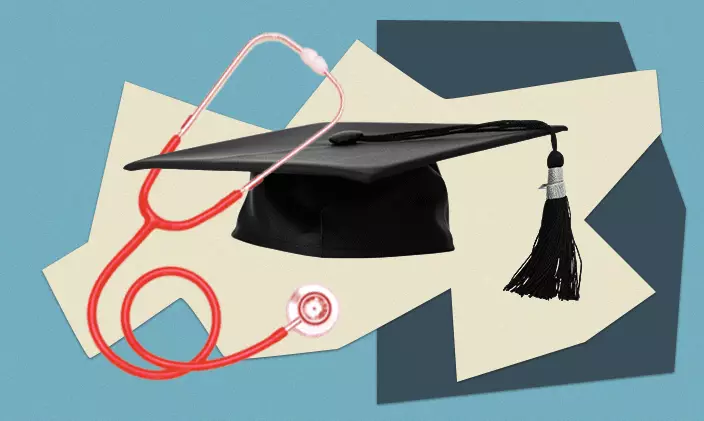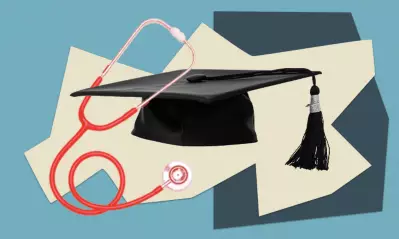How to get a BSN degree

Written by Michael Feder

This article was reviewed by Raelene Brooks, Dean, College of Nursing.

In this article
Registered nurses (RNs) are a vital part of the healthcare system and can pursue numerous specializations, especially after looking into how to get a BSN degree. The field has many types of nurses , including charge nurses
and travel nurses, for example. From patient advocacy to hands-on treatment, RNs provide essential care in hospitals, clinics, outpatient surgery centers, public healthcare settings and more.
Why you should know how to get a BSN degree
To become an registered nurse, you can take a variety of paths and then go further once you learn how to get a BSN degree. Initially, you can complete a diploma nursing program or earn an Associate Degree in Nursing (ADN) and then obtain licensure. You canalso continue your education and pursue a Bachelor of Science in Nursing (BSN), to enhance your career and explore new opportunities.
Ultimately, the difference between an RN and a BSN is that RN describes a professional role that requires a license, whereas a BSN is a nursing degree program that allows RNs to grow their skill set, such as in leadership, and potentially adopt new roles within the nursing field.
If you’re an RN who wants to take the next step in your career, an online nursing degree can help prepare you for your nursing journey. Let’s explore how to earn a BSN, including why competency-based RN-BSN programs can streamline the process for working RNs who hold an active license.
How to get your BSN degree
Despite the ways online coursework can make earning a degree more feasible for working adults, completing your BSN takes time and dedication. It’s essential to research all pathways before deciding which makes the most sense for your situation.
RNs who hold a bachelor’s degree in a field other than nursing and who want to enhance their careers can consider an option outside of the BSN. Nurse bridge programs provide licensed nurses with an avenue for additional education and career enhancement through a Master of Science in Nursing.
An MSN program is a post-licensure nursing program designed for nurses with current RN licensure who desire to obtain a Master of Science in Nursing with a specialization, such as Administration, Education, Informatics, Family Nurse Practitioner and Psychiatric Mental Health.
How to go from RN to BSN
Nurses who have graduated with a nursing diploma or an ADN and who have obtained their RN licensure, can earn their BSN through a traditional RN to BSN program track.
For nurses who have at least one year of full-time, post-high school, clinical RN work experience and who thrive in self-governed educational settings, there are Competency-Based RN to BSN program tracks.
Competency-based (CB) programs are structured differently from traditional degree programs, where students work with faculty advisors to focus their education on learning skills and knowledge they don’t already have. By scheduling regular competency assessments according to their needs and in conjunction with faculty advisors, students can spend more time learning what they don’t know and less time proving what they do know.
Students can complete a competency-based BSN program at some universities in as little as 12 months.
How to go from an ADN to a BSN
If you already have an ADN, are you windering how to get a BSN? Nurses who hold an ADN and who have completed their RN program and NCLEX licensure, can also earn their BSN through an RN to BSN program. You will only need experience if you are looking to take a competency-based RN to BSN program.
BSN admissions requirements
Requirements may depend on the institution, but BSN programs typically require candidates to hold an active, unencumbered RN license in each jurisdiction in which they have licensure. As mentioned, applicants for the CB track must have at least one year of nursing work experience.
Expected BSN coursework
Proper BSN programs align with the American Association of Colleges of Nursing Essentials to deliver the necessary curriculum and expected competencies. In addition to general education coursework to help develop your knowledge of health, wellness and nutrition, you may complete coursework that focuses on:
- Public health fundamentals
- Healthcare policy and financial management
- Professional nursing leadership perspectives
- Ethical and legal considerations
- Research outcomes management
Hard and soft skills you’ll develop when earning a BSN
The hard and soft skills you’ll learn when earning a BSN go beyond the basic skills needed for nursing , like how to administer medication and insert an IV. You’ll learn how to practice evidence-based care that reflects your knowledge of health and wellness. You’ll demonstrate professional standards of ethics and legal conduct within the healthcare industry, and you’ll learn how to better communicate within the health setting, whether that’s with patients or peers.
Skills you’ll acquire during a BSN program include the following:
- Communication
- Critical thinking and holistic nursing
- Compassion in population health
- Professionalism
- Leadership
- Coordination of safe care
- Information management and communication
- Quality improvement and case management
Many of these skills can even translate to additional alternative careers to nursing , further setting you up for career success.
Potential careers after earning a BSN
You now know how to get a BSN. If you’re an RN, you should also know that this degree can prepare you for additional career opportunities for RNs. Depending upon your role and experience, nursing salaries across the country can vary.
These are some of the positions a BSN can prepare you for:
- Charge nurse: Charge nurses
are RNs who oversee administrative duties and coordinate between hospital leaders and general nursing staff. Their role often involves patient care as well. Many charge nurses provide crucial guidance to nurses and coordinate schedules among their teams.
- Public health nurse: Public health nurses
promote and protect population health with knowledge gained from nursing, social and public health sciences. Rather than treat acute health problems, a public health nurse’s primary responsibility is to prevent disease and disability among the people in their community. Public health nurses can work in research facilities, outpatient clinics, community health clinics and other institutions. BLS doesn’t differentiate between PHNs and other types of RNs; earning potential for this role falls in line with other RN roles.
- Director of nursing: Directors of nursing
incorporate years of experience to handle the duties of overseeing an entire department’s nursing operation. In many cases, they implement policies, set budgets, manage staff and help triangulate information between administration and nurses. The BLS includes nursing directors as medical and health services managers; as of May 2023, salaries for this role
earned between between $67,900 and $216,750, with a median wage of $110,680, according to BLS.
- Hospital administrators plan, direct, and coordinate the business activities of healthcare facilities, including hospitals. As of May 2023, (hospital administrators earned between $67.800 and $216,750, with a median wage of $ $110,680, according to BLS.
- Nursing instructors demonstrate and teach patient care in classroom and clinical units to nursing students.… As of May 2023, (job title)s earned between $ 49,120 and $ 130,320, with a median wage of $ 86,530, according to BLS.
Salary ranges are not specific to students or graduates of University of Phoenix. Actual outcomes vary based on multiple factors, including prior work experience, geographic location and other factors specific to the individual. University of Phoenix does not guarantee employment, salary level or career advancement. BLS data is geographically based. Information for a specific state/city can be researched on the BLS website.
Options for how to get a BSN
So, are you thinking about how to get a BSN from the convenience of your desk? The Bachelor of Science in Nursing programs available at University of Phoenix (UOPX) can readily help RNs learn relevant skills that can enhance their careers.
Review the full spectrum of UOPX’s nursing degree offerings or choose from the following bachelor’s degree programs:
Want to know more? Contact UOPX for additional information.

ABOUT THE AUTHOR
A graduate of Johns Hopkins University and its Writing Seminars program and winner of the Stephen A. Dixon Literary Prize, Michael Feder brings an eye for detail and a passion for research to every article he writes. His academic and professional background includes experience in marketing, content development, script writing and SEO. Today, he works as a multimedia specialist at University of Phoenix where he covers a variety of topics ranging from healthcare to IT.

ABOUT THE REVIEWER
Currently Dean of the College of Business and Information Technology, Kathryn Uhles has served University of Phoenix in a variety of roles since 2006. Prior to joining University of Phoenix, Kathryn taught fifth grade to underprivileged youth in Phoenix.
This article has been vetted by University of Phoenix's editorial advisory committee.
Read more about our editorial process.


